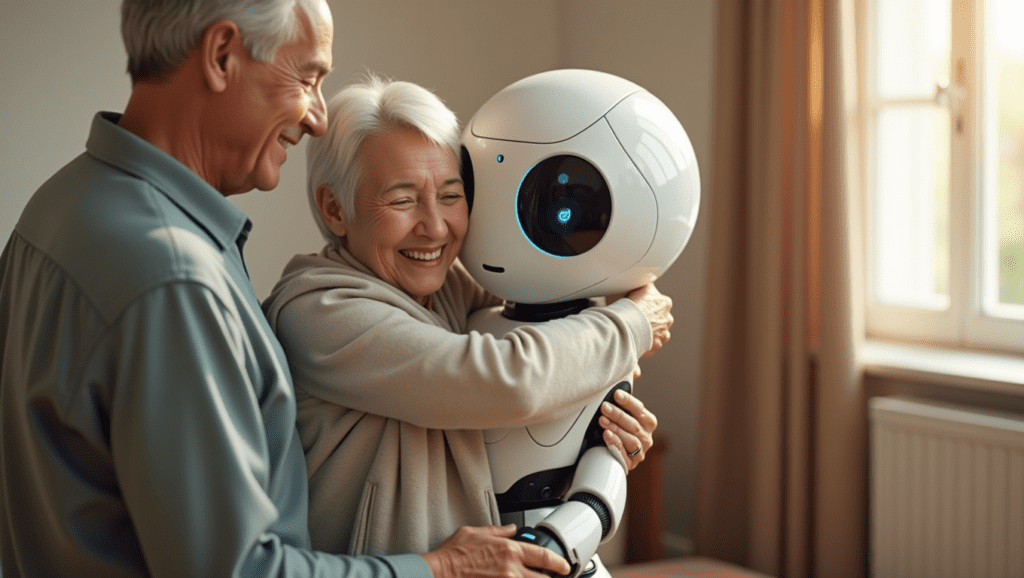Debunking AI Myths: What Seniors Should Really Know About Artificial Intelligence
Artificial Intelligence, or AI, is one of those buzzwords that seems to be everywhere these days. From TV ads to news headlines, AI is often talked about as if it’s a mysterious, all-powerful force. But here’s the good news: AI isn’t as complicated (or scary!) as it might seem, and it certainly isn’t out to take over the world!
In this blog post, we’re going to tackle some of the common myths about AI that may be causing unnecessary worry, especially for seniors. We’ll break it down in simple terms, showing that AI is here to help, not harm. Let’s set the record straight!
Myth 1: AI Will Replace Human Jobs and Make People Useless
Reality: While it’s true that AI is being used in many workplaces to automate certain tasks, it doesn’t mean humans are being replaced or made obsolete. AI is best at handling repetitive or data-heavy tasks, freeing up humans to focus on more meaningful and creative work. Think of AI as a helpful assistant rather than a replacement.
For seniors, AI is actually creating new opportunities rather than taking them away. For example, voice assistants like Alexa can help with daily reminders, or smart devices can make it easier to stay in touch with family. Instead of taking jobs, AI is helping people—especially seniors—stay more connected and independent.
Myth 2: AI Is Too Complicated for Seniors to Use
Reality: This is a myth that couldn’t be further from the truth! Many AI-powered devices are designed to be easy to use, even for those who aren’t tech-savvy. You don’t need to know anything about programming or coding to use AI—if you can speak, press a button, or tap on a screen, you’re already using AI!
For example, if you can say “Alexa, what’s the weather today?” or “Siri, set a reminder for my doctor’s appointment,” you’re interacting with AI in the simplest way possible. These devices are designed to listen to your voice and respond quickly, making them user-friendly for everyone, regardless of age or experience.
Myth 3: AI Is Watching Everything We Do
Reality: Some people worry that AI is constantly spying on them, keeping track of everything they say or do. The truth is, AI-powered devices aren’t designed to be nosy. While it’s important to be mindful of privacy (as with any technology), most AI devices only activate when you interact with them. For instance, a voice assistant like Alexa or Google Assistant listens for a wake word, such as “Hey Alexa,” and then starts listening to your request. It’s not listening 24/7.
Many AI companies have built-in privacy features, such as allowing you to mute your device’s microphone or erase your voice history. AI is meant to be a helpful tool, not a snoop, and there are safeguards to protect your personal data.
Myth 4: AI Is Just for Tech-Savvy People
Reality: AI isn’t just for computer experts or young tech enthusiasts—seniors are using it more than you might think! From voice-activated assistants to smart thermostats, AI can make everyday tasks easier, and it doesn’t require any special technical knowledge.
Many AI-powered devices, like health trackers or home security systems, are designed with simplicity in mind. These devices often come with easy-to-follow instructions and helpful support. So don’t let the word “artificial intelligence” intimidate you—AI is designed to fit seamlessly into your life, no tech degree needed!
Myth 5: AI Is a Passing Trend
Reality: While AI might seem like a new fad, it’s actually here to stay. AI is already part of many technologies we use daily, such as Google search, Netflix recommendations, and even fraud detection in banking. These systems are powered by AI to make them smarter and more helpful over time.
For seniors, AI isn’t a passing trend but a valuable tool that can improve quality of life, whether through healthcare monitoring, voice-activated assistance, or entertainment. AI will continue to evolve and get better, offering even more ways to help us in the future.
Myth 6: AI Can Be Dangerous
Reality: Like any tool, AI is only as good as the way it’s used. AI is designed to help, not harm, and many of its uses today are focused on improving safety and security. For example, AI can detect medical emergencies, help prevent falls, or even remind you to take your medication. It’s a way to add extra protection to your life, not a danger.
While it’s good to be cautious with any new technology, there are safeguards and regulations in place to make sure AI is developed responsibly. If used properly, AI can be a helpful and safe addition to your daily routine.
Conclusion: AI Is Your Friendly Helper, Not a Threat
Artificial Intelligence might sound like something out of a science fiction movie, but in reality, it’s here to make life easier, especially for seniors. Whether it’s helping with health monitoring, providing reminders, or connecting you with family, AI is designed to serve as a helpful assistant. So, the next time you hear the term “AI,” remember that it’s not something to fear—it’s simply another tool that’s here to improve everyday life.


